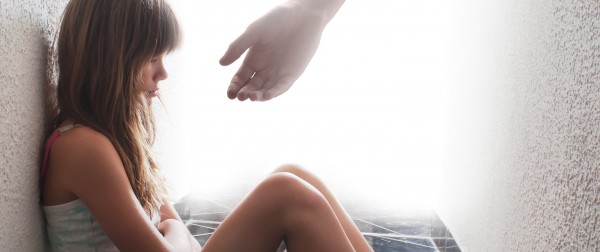
If you’ve never experience depression yourself or have had a loved one suffer from it, you should consider yourself lucky. Depression is a very real and debilitating condition. As parents, we’re supposed to be the strong and dependable figures in our child’s lives. We need to be. They look to us for guidance and feelings of safety and security. So what happens if a mom or dad is suffering from depression? How does it impact the kids in the home? And what can be done about it?
Some recent events in my live have caused me to reflect on this very question. I think a lot of the effects depend on a child’s age. Babies and toddlers need constant interaction with their mothers. The bond that a baby shares with their mother is something they crave and need to develop in a healthy manner. Postpartum depression (PPD) affects 10-15% of women and it can make the early weeks and months of motherhood very difficulty for both mommy and baby.
When a new mother is suffering from depression, it also means a lack of energy and/or desire to interact with their infant. It can also lead to feelings of anxiety and being overwhelmed when the baby cries. Toddlers need constant interaction as well. They’re learning to walk, talk, and explore. An engaged mother will participate in these activities and help expand learning opportunities. If a mother is feeling withdrawn, a child will pick up on this. Kids show excitement when those around them are excited. Think of a game of “Peek-a-Boo”. It’s the parent’s silly reaction and exaggerated excitement that makes baby laugh and want to play over and over again.
Just because a child is older doesn’t mean that depression won’t affect them also. School age children of depressed parents are often forced to grow up before their time. Without the help of their parents, everyday tasks are completed alone. This can be as simple as getting themselves a snack after school, walking home from the bus stop, or completing homework. Sure, a certain level of independence is important in kids, but they still need to know a parent is there to help them if needed. Sometimes, kids miss out on afterschool activities or time with friends if mom is unwilling to drive them where they need to go or take the other necessary steps to get them involved. Depressed mothers can also be more agitated and critical of their children. This can negatively impact a young child’s confidence and feelings of self-worth.
Anyone suffering from depression should seek help in order to live a full, happy life. But this is even more true for mothers who have children to care for. There are so many resources available today for treating depression. If you prefer not to take medication, that’s okay! Therapy options, counseling, and even meditation and other more holistic options have proven quite successful. I think the first step to recovery is acknowledging there is an issue and being open and willing to receive the love, help, and support your family is offering. If you can’t imagine doing it for yourself, think of your children. They need and want their mother fully present in their life. You’ll be so thankful you did.
This post comes from the TODAY Parenting Team community, where all members are welcome to post and discuss parenting solutions. Learn more and join us! Because we're all in this together.
